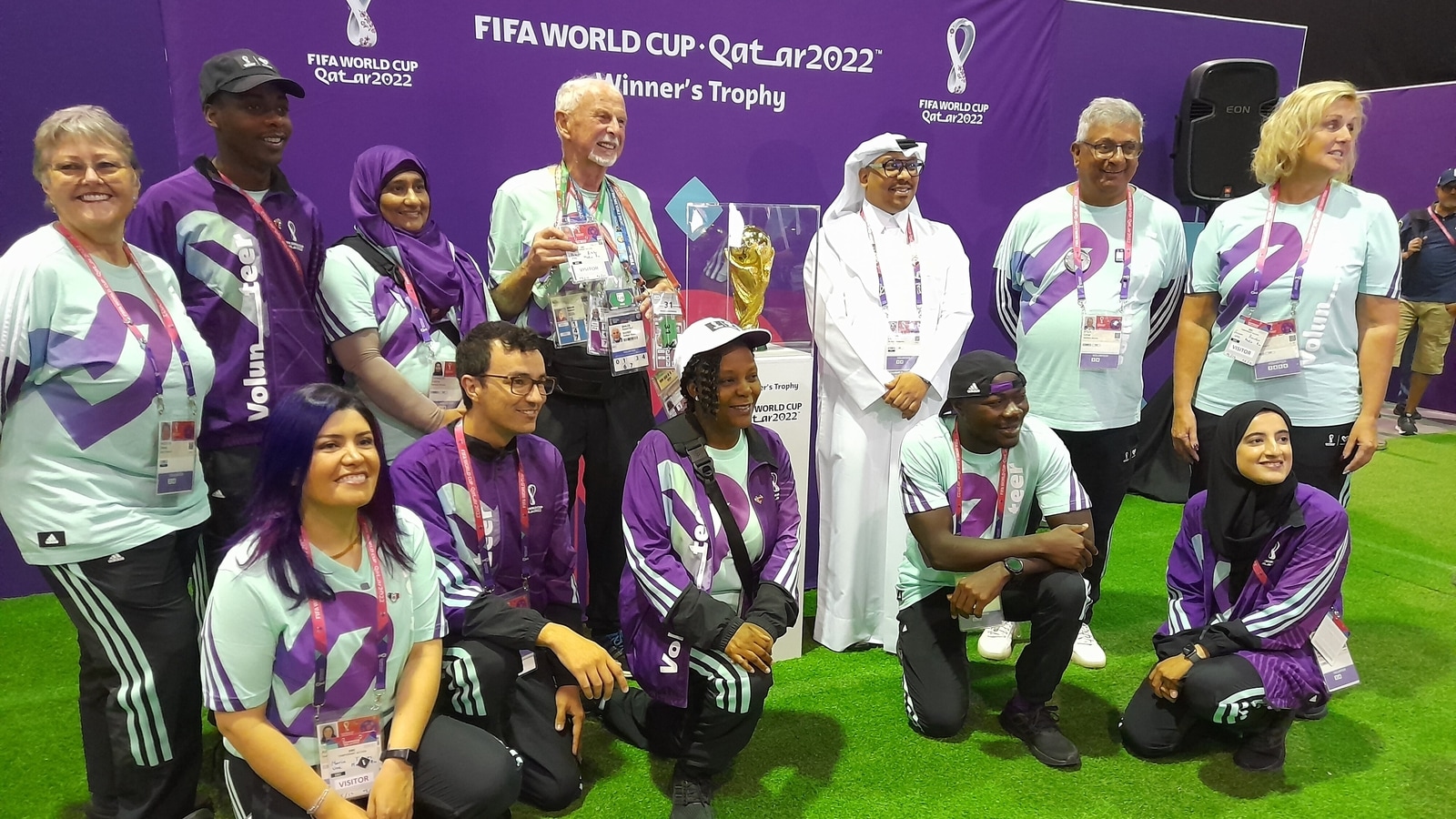[ad_1]
Dada Omar debated whether he should pay off his mortgage or be in Qatar. “I checked online and saw that accommodation could cost $43,000 for the month,” said the mathematics teacher from Auckland who calls Eden Park home. But he had missed a “home” World Cup in 2010 by months and that had doubled his determination.
The decision was made for Omar when he found out that free accommodation was available. “I decided to expand my experience and come to the biggest single sport event in the world,” he said.
Also Read | Bounou the shot-stopper as Morocco eliminate Spain
For Hubert Bihler, it was about listening to what has been his calling since 2005 when he retired as a school teacher in Stuttgart. Doha is another stop on a journey that began with the 2005 Confederations Cup when Bihler spotted an advertisement in a local newspaper. “I had no idea that I would be chosen,” said the man who gave his age “as nearly 77.” It is a journey that has taken him to five Olympics and six World Cups, including the women’s World Cup in Germany in 2011. One that he hopes will also take him to the expanded 48-team men’s World Cup in 2026.
Ayesha Tanvir, Diane, Zubina, and Labeed Ali Ellath live in Doha so do not have to bother about finding a bed. Tanvir and Ellath’s families are from Delhi and Kozhikode respectively but both said they were born here. Tanvir does not visit very often, “as most of my family is either here or have moved abroad” but Ellath goes back “every year because it is home.”
They are part of 20,000 volunteers keeping the wheels of this one-city tournament greased, giving it their time, paying for flights, and, in many cases, being on leave without pay. From guiding spectators to seats, checking passes for press conferences and mixed zones to helping in waste segregation, they do it all. Usually with a smile and after having you at hello.
Qatar received 450,000 applications which were pruned to 58,000 by testing candidates through games and online simulations, said Rasha Al Qarni who leads the workforce and administration project for the 2022 World Cup. That number was reduced to 20,000 volunteers, 3000 of which are from outside Qatar, said Al Qarni.
Through the World Cup, “we are trying to transfer a bit of information about itself to the world,” said Al Qarni who is a citizen of Qatar. Diane, who is a nurse and living in Doha for the past five years after relocating from New Zealand, said she found the World Cup “amazing.” To that, Zubina, also from New Zealand and who moved to Doha 12 years ago when her husband “was head-hunted”, added: “We are seeing brand new country during the World Cup.”
Bihler agreed. “I think I did right by coming here,” he said. There were apprehensions given what was being reported in the western media, he said. “But I met so many Asian and Arab people here who turned out to be friendlier than expected. By being a volunteer, you experience the spirit of empathy. Doha has been no different,” said Bihler.
The volunteers work eight-hour shifts with a 30-minute break for lunch. “We work only on match days,” said Omar. On days they work, meals are provided for, he said. “On other days I watch games,” he said. “I have burnt a small hole in my pocket buying tickets for 16 games.”
Like Bihler, Omar’s tryst with volunteering began at home. He said he had been at it since the 2011 rugby World Cup. “I also did the 2015 50-over cricket World Cup and the under-20 football World Cup in New Zealand. And I hope I will be chosen for the 2023 women’s World Cup. I am looking forward to seeing the USA at Eden Park,” he said.
Omar’s grandmother migrated from Kutch to Polokwane in South Africa when his grandfather died. “She was pregnant and my father was young. On the ship, she had a miscarriage and the baby was buried in the sea,” he said. The baby’s name was Omar and he is called that as a mark of remembrance, said Omar.
“With apartheid, I couldn’t really follow through on my love for football.”
Omar had missed New Zealand playing in Polokwane because he had visited South Africa six months ago. “You know how it is for a teacher, you can travel only during school holidays vacations. So, I didn’t want to miss this,” said Omar who moved to New Zealand in 1995.
[ad_2]
Source link



